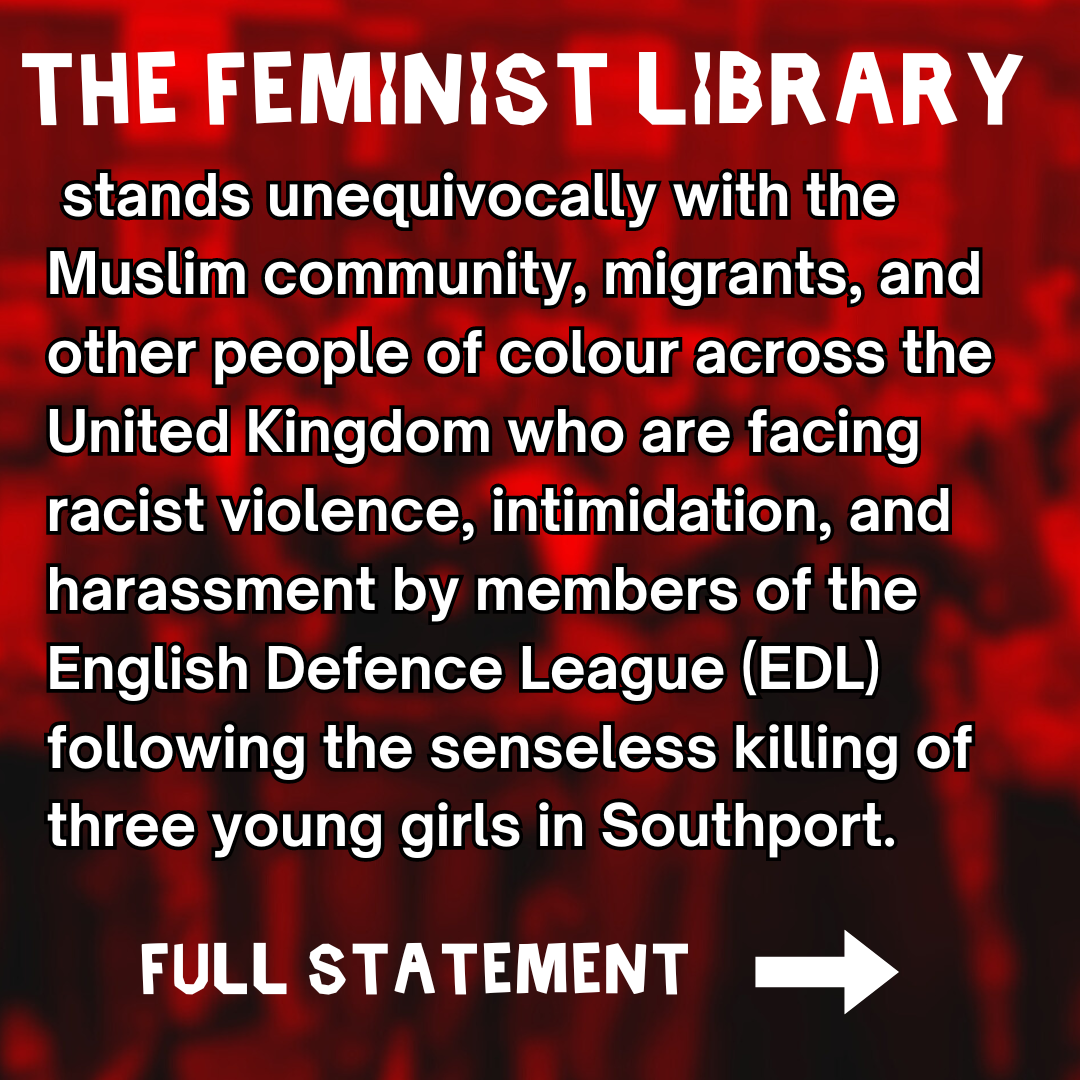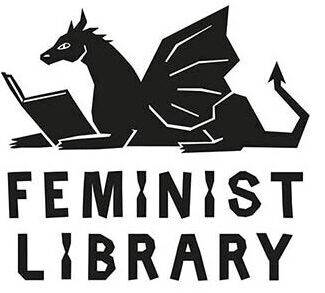Statement on Fascist riots August 2024

The Feminist Library stands unequivocally with the Muslim community, migrants, and other people of colour across the United Kingdom who are facing racist violence, intimidation, and harassment by members of the English Defence League (EDL) following the senseless killing of three young girls in Southport.
As feminists, we understand how fascists use faux concern for the “safety of women and girls” as cover for white supremacist violence. Fascist logic characterises racialised men as a threat to white womanhood, the nuclear family and the nation simultaneously. The violence we are witnessing is driven by a desire to eliminate this perceived threat, a threat which has been manufactured by the British establishment over the previous decades through successive hostile environment policies, racist counter-terrorism laws, and foreign wars sought to supposedly “liberate” Muslim women.
Drawing from the rich feminist, anti-fascist tradition in the United Kingdom, we refuse to have our real concerns about the prevalence of gendered violence be weaponised and exploited. We condemn the use of gender as a flashpoint for fascist mobilisation because we understand that race and gender are not separate categories, under capitalism, they create one another, placing all racialised people under threat. We also know that fascist violence is gendered violence in its deeply patriarchal and mythic depiction of white womanhood as in need of protection from “predatory” brown men, while viciously attacking Black, brown, and Muslim women in public spaces. Fascist violence threatens us all and gendered liberation is impossible whilst it exists.
We call on anyone who calls themselves a feminist to get organised and stand in solidarity with Black, brown, and Muslim comrades in their community. This moment requires a strong coalition of anti-racist and feminist organisations, trade unions, communities and individuals to mobilise resistance to fascist violence on the streets. Attend counter-demonstrations, join and learn from your local anti-fascist and anti-racist networks, open up your homes as points of refuge, and be there to rebuild.
We also understand the impulse to call for increased policing and harsher sentences for those who commit racist violence. But reliance on policing, the law, and the courts for “justice” will only disappoint in the long term. Policing institutions and infrastructures have always been sympathetic to fascist violence – on the street and in the courts. On the 13-year anniversary of the fatal shooting of Mark Duggan by police officers in Tottenham, it’s worth remembering that increased police powers will adversely affect the very communities it claims to protect, increasing powers to arrest, surveil, imprison and kill Black and Muslim people who are already overrepresented in the prison population. Meanwhile, imprisoning fascists does nothing to address the culture that has allowed these pernicious attitudes to thrive – it simply puts incarcerated black and brown people in further danger.
Grassroots mobilisation and community defence have historically been the most practical opposition to fascist mobilisation. This means preparation for confrontation as well as looking out for your neighbours and those in your communities.
The feminist movement is an intersectional revolutionary movement. In the present moment, the Feminist Library draws strategic lessons from The Asian Youth Movements, The Brixton Ad-hoc Committee against Police Repression (1978), Black People Against Street Harassment and other historic attempts to mobilise against fascism in London by racialised people. These strategic lessons include the creation of networks for monitoring fascist and police violence, increasing knowledge of how to resist arrest and in person shows of strength in opposition to racist violence. We echo the call of the London Feminist Anti-Fascist Assembly, when they declared in 2018 that the enemy does not arrive by boat, he arrives by limousine. We stand with our migrant sisters, brothers and siblings for a world without borders of any kind. It is drastically important as feminists that we see how gender is being weaponised in rising fascism, how it connects these struggles, and know that it is our responsibility as feminists to reject this narrative.
